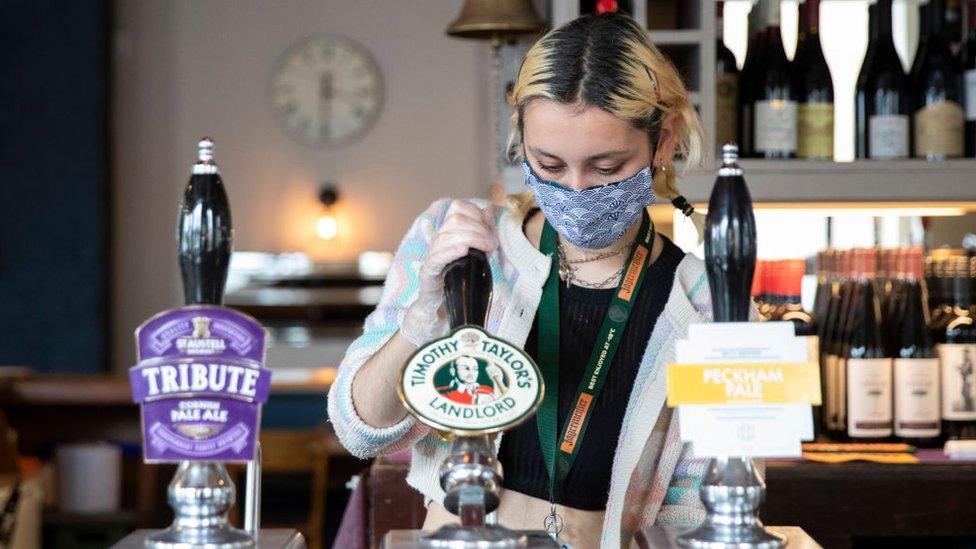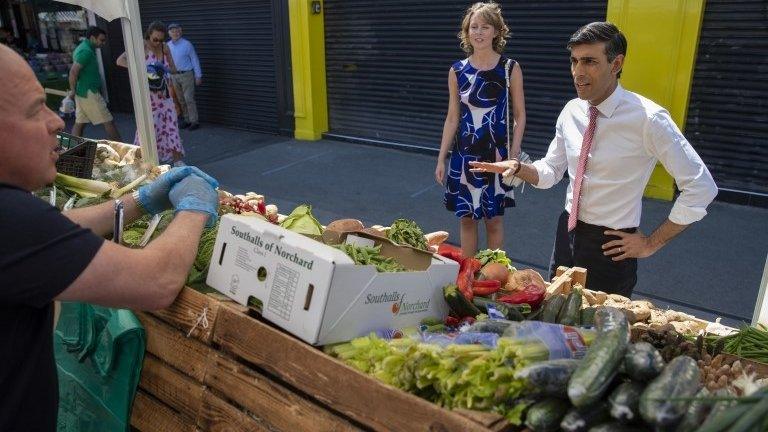Youth, youth, youth is the new build, build, build
- Published

The government is keenly aware that younger workers are more exposed to the devastating economic impact of the coronavirus pandemic.
In some of the hardest hit sectors - retail, hospitality and leisure, a third of the workforce is aged between 16 and 24.
It is also fertile ground for young people to start their own businesses.
However, its's also one of the sectors of the economy least likely to bounce back quickly, which is why the Chancellor will announce plans on Wednesday to find new jobs to replace the old ones young people typically filled.
A £2bn "kickstarter" jobs fund will see the government pay for the first 25 hours - at minimum wage - for six months, for companies taking on young workers claiming universal credit.
It's estimated that this could translate into the support of more than 300,000 new jobs.
That may help offset the 500,000 job losses that the British hospitality industry is predicting in that sector alone this year, unless there is further support.
Possible measures could include extending the government's wage support scheme that is due to start wearing off from 1 August, before being withdrawn completely at the end of October. But that is thought to be unlikely.
The government may listen to pressure from industry groups, calling for targeted VAT cuts to boost confidence and profit margins in crippled sectors.
What seems certain is that the government focus will shift tomorrow, from a mode of "protect and survive" for the jobs of the past, to one of trying to create the jobs of the future.
- Published8 July 2020

- Published8 July 2020

- Published7 July 2020

